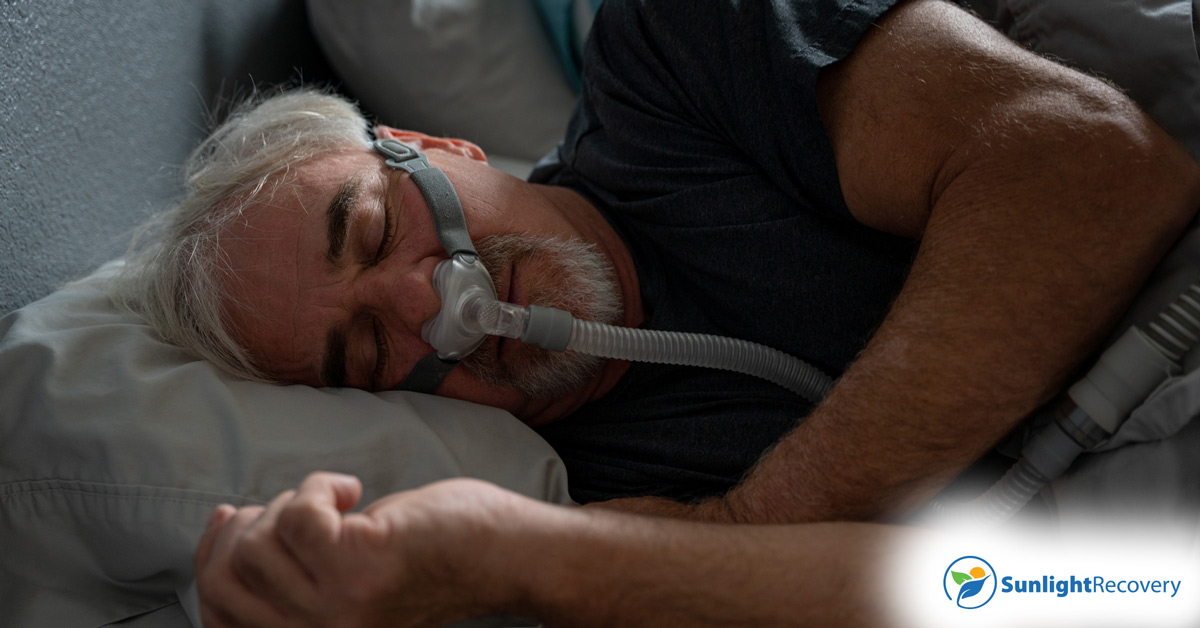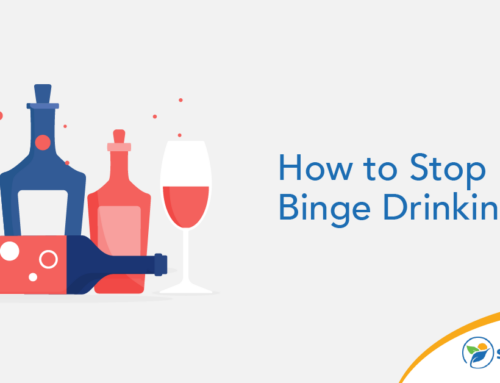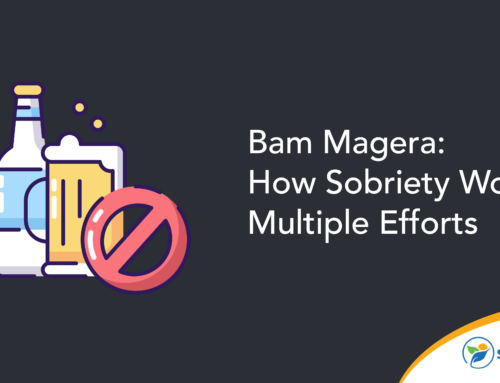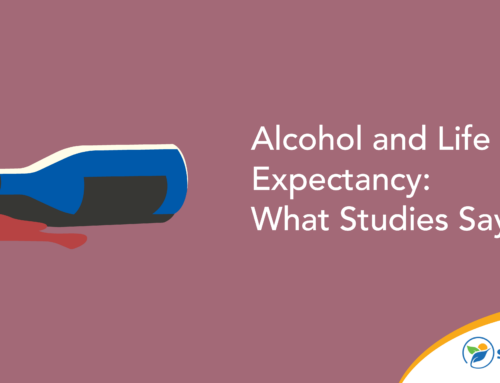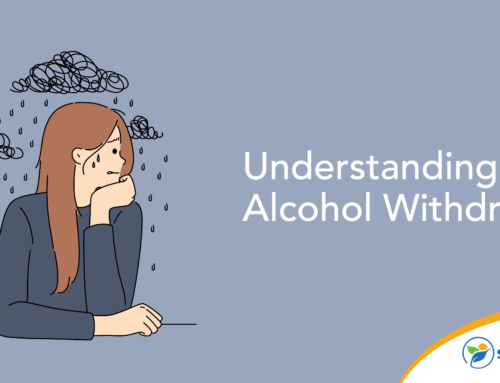Sleep apnea is a disorder that occurs when breathing stops and starts while sleeping. Symptoms include loud snoring, gasping for air while sleeping, dry mouth, morning headaches and irritability. Individuals with sleep apnea may also experience insomnia, or the inability to stay asleep at night, or hypersomnia, which is excessive sleepiness during the day. These symptoms can worsen after drinking due to a link between sleep apnea and alcohol.
Three types of sleep apnea exist. The most common type, obstructive sleep apnea, occurs when the throat muscles relax during sleep and block airflow to the lungs. Central sleep apnea happens when the brain doesn’t send signals to the muscles that control breathing. Finally, treatment-emergent central sleep apnea begins as obstructive sleep apnea and evolves while receiving treatment for sleep apnea.
A variety of factors can make sleep apnea worse. Sleeping on the back can heighten sleep apnea symptoms. Being overweight and having certain medical conditions, including high blood pressure and diabetes, can also result in more symptoms. Similarly, alcohol and some prescription medications can make sleep apnea more problematic.
So, does alcohol make sleep apnea worse? The answer is yes. Learn more about the link between alcohol and sleep apnea and how to reduce sleep apnea symptoms.
How Alcohol Can Affect Sleep
Alcohol can lead to poor sleep. Although alcohol acts as a sedative, which means it can result in drowsiness, it also leads to poor sleep quality throughout the night. Falling into a deep sleep quickly disrupts the typical sleep cycle, which includes four stages of sleep. So, even though someone falls asleep easily after drinking alcohol, they experience more disrupted sleep.
After drinking, individuals may wake up more frequently throughout the night. After the initial alcohol-induced deep sleep phase, people may have trouble falling back to sleep after they wake up. As a result, people who drink might experience insomnia at night that leads to excessive sleepiness during the day. This cycle of disrupted sleep can result in unhealthy sleep patterns.
Sleep Apnea and Alcohol
Alcohol doesn’t simply result in disrupted sleep. It can also worsen the symptoms of sleep apnea. Alcohol works as a muscle relaxant, which means it relaxes the muscles in the nose and throat. As they relax, these muscles are more prone to fluttering, which can result in more noise. As a result, alcohol and snoring are linked, with the likelihood of snoring increasing after drinking.
The relaxant properties of alcohol can result in further sleep apnea issues as well. When the muscles of the throat relax, they go slack. This can create airway obstructions that may interrupt breathing while sleeping. For individuals already diagnosed with sleep apnea, alcohol can make their symptoms even worse.
Additionally, after drinking, people have a higher arousal threshold, meaning it’s harder for them to wake up. Typically, people with obstructive sleep apnea partially awaken when their oxygen levels are low, triggering a normal breathing pattern. People under the influence of alcohol are slower to arouse, which can result in longer or more severe periods of low oxygen while they sleep. The University of Rochester Medical Center reported that alcohol use can increase the frequency and duration of breathing pauses in individuals with sleep apnea.
Several research studies have found a link between sleep apnea and heavy drinking. In a 2018 meta-analysis published in the journal Sleep Medicine, researchers analyzed 21 studies to find a link between sleep apnea and alcohol. Based on this research, they concluded that alcohol consumption increased the risk of sleep apnea by 25%.
Additionally, a June 2020 meta-analysis published in the journal Otolaryngology — Head and Neck Surgery examined 1,266 manuscripts to learn more about the effect of alcohol consumption on sleep apnea. The findings indicated that alcohol can increase snoring, impact the sleep cycle and reduce oxygen saturation in patients with obstructive sleep apnea. The study also found that alcohol increased the apnea-hypopnea index (AHI), or the number of episodes that occur per hour of sleep.
Treating Sleep Apnea
A variety of treatment options are available to lessen the symptoms of sleep apnea. Lifestyle changes are an effective way to reduce sleep apnea symptoms, especially for individuals with mild cases. One simple change is sleeping on the side or stomach instead of the back, which can make breathing easier. Losing weight and quitting unhealthy behaviors, such as smoking, can also reduce symptoms. Likewise, reducing alcohol consumption can minimize the effects of sleep apnea.
Moderate to severe cases often call for the use of a continuous positive airway pressure (CPAP) machine. Individuals wear a mask when they sleep, and the machine works to increase air pressure to keep upper airway passages open. Ideally, individuals with moderate to severe sleep apnea should avoid alcohol. But if they do drink, using the CPAP machine is especially important. Using CPAP while drunk or after drinking is important to ensure symptoms don’t worsen due to alcohol’s muscle-relaxing effects.
Oral appliances are another treatment option for sleep apnea. Similar to a retainer, these devices can be placed in the mouth to keep the airway open during sleep. These appliances are often less cumbersome than a CPAP machine, making them appealing to some individuals with sleep apnea.
Reducing Your Sleep Apnea Symptoms
Identifying lifestyle factors that can worsen sleep apnea is the first step in reducing these symptoms. Alcohol can increase your sleep apnea symptoms, including snoring and the frequency of breathing episodes during the night. Reducing your alcohol intake, then, is essential to properly care for your sleep apnea. You can enjoy a more restful night’s sleep, lessen your sleep apnea symptoms and experience better overall health.
If you’re concerned that your alcohol intake is affecting your health, including your sleep apnea, we’re here to help. Contact Sunlight Recovery to learn more about our programs. Our alcohol addiction treatment can help you improve your sleep apnea and your overall health.


